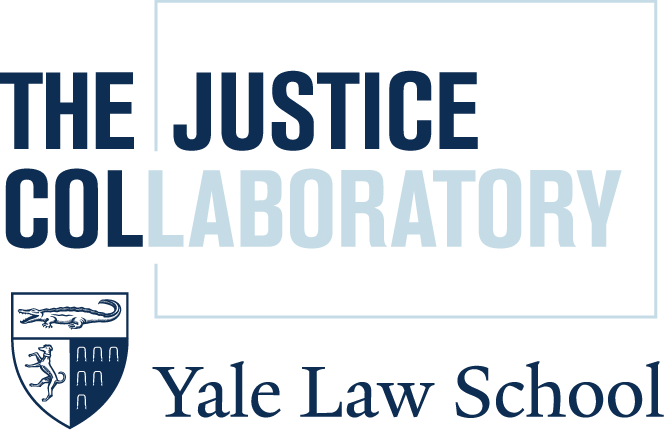Projects
Our work is driven by a diverse community of scholars who conduct justice-focused, community-oriented theoretically grounded work.
Scholar
- Andrade 1
- Aunger 1
- Ayres 1
- Badiei 3
- Baskin-Sommers 1
- Bell 3
- Betts 1
- Bradford 1
- Camacho 1
- Cox 2
- Dessources 1
- Diodati 1
- Erickson 1
- Friedman 1
- Gluck 1
- Goff 1
- Granot 1
- Gripp 6
- Hinton 1
- Jha 1
- Johnston 3
- Katsaros 7
- Kazar 1
- Kim 1
- Kraschel 1
- LaGratta 1
- Lewis 1
- McDonald 1
- Meares 13
- Meyer 1
- O'Brien 1
- Parigi 1
- Peyton 1
- Pineda 1
- Prowse 1
- Puglisi 1
- Quattlebaum 3
- Sarnoff 5
- Schoenebeck 1
- Seau 1
- Sperrazza 1
- Stewart-James 1
- Tyler 15
- Vaughn 3
- Venkatesh 6
- Wang 1
- Weaver 1
- Wheelwright 1
- Yang 1
- courts 1
Elevating Trust and Legitimacy for Prosecutors Project
Yale Law School’s Justice Collaboratory has partnered with the Association of Prosecuting Attorneys and LaGratta Consulting to develop the Elevating Trust and Legitimacy for Prosecutors Project. Through a multi-phase site selection process, project partners chose the Salt Lake County District Attorney’s Office, Saint Paul City Attorney’s Office and Columbus City Attorney’s Office as the project pilot sites to engage in a year-long collaborative assessment, planning, and implementation process of procedural justice practices.
Social Media Governance Research Network
Yale Law School’s Justice Collaboratory has launched a new research network within their Social Media Governance Initiative. The Research Network is a consortium of scholars working together to examine the sociocultural impacts of digital technologies on contemporary social life.
Law, Policy & Guns
Through a series of public events, a new course offering, cutting-edge scholarship, and a special issue of The Journal of Law, Medicine & Ethics, the Justice Collaboratory in conjunction with the Solomon Center for Health, Law & Policy is placing a special focus on addressing the epidemic of gun violence in America.
How do Communities Respond to Gun Violence Prevention Policies?
This project involves a qualitative evaluation of gun violence prevention services in New Haven, utilizing a community-based participatory action research (CBPAR) model. Its goal is to explore: (1) How do individuals and communities impacted by gun violence understand its underlying causes and experience its effects? (2) How do individuals and communities experience gun violence prevention work?
2019 Workshop on Data-Driven Criminal Justice Reform and Data-Driven Prosecution
With the support of the William T. Grant Foundation and the Chan Zuckerberg Initiative, we are working with several large district attorney’s offices to understand the causal impacts of misdemeanor prosecution. Misdemeanor cases make up over 80 percent of the cases processed by the U.S. criminal justice system, yet we know little about the causal impacts of misdemeanor prosecution.





